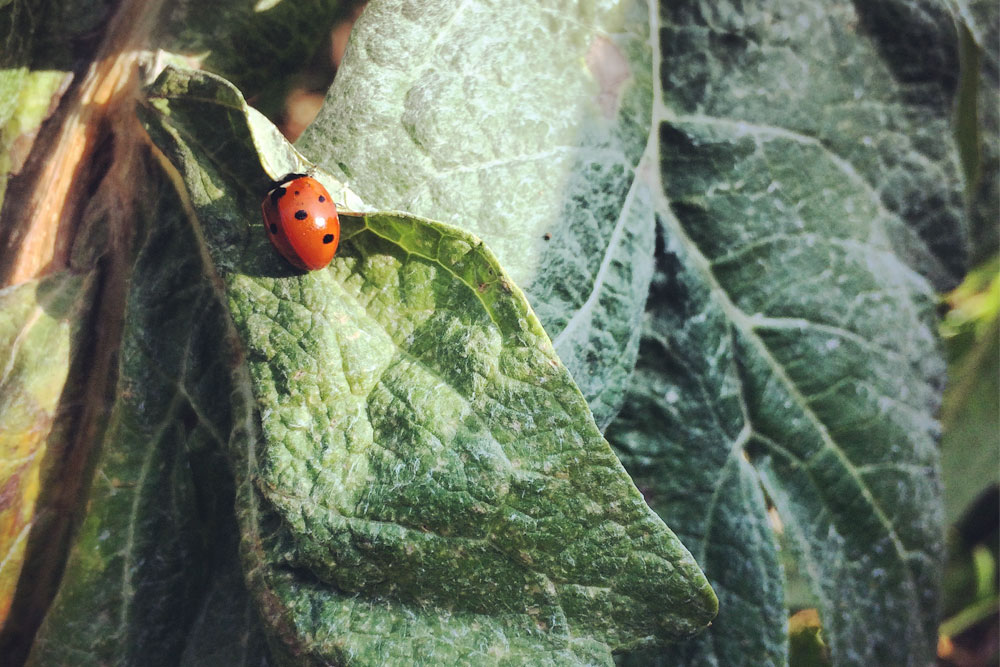On his small two-acre farm in southern Uganda, Charles grows bananas, papaya, coffee, pineapples and a range of vegetables, as well as fodder for his two beloved cows. He worked at Riverford as part of his training in sustainable agriculture – and during my return visit to his farm, he described how he made his own insecticide treatment with homegrown tobacco, ash and soap. Despite being plant-based and homemade, this treatment was regarded as a last resort and a failure of his management on the rare occasions he used it. His success infood production relied on guarding the ecological stability of his holding. I have never met a farmer in the ‘developed’ world who combined Charles’s practical knowledge of plants, animals, composting, pests and soil with such ecological (philosophical?) understanding of how they all interact. The subtlety and sophistication of his approach made UK farming look primitive and ignorant.
More biological treatments for plant diseases are becoming commercially available. We can now control the soil-borne disease Sclerotinia using Contans, a natural soil fungus; aphids by introducing parasitic wasps and ladybirds; caterpillars using the soil-dwelling bacteria Bacillus thuringiensis; and slugs using nematodes (roundworms) or iron phosphate. These welcome advances are far less damaging to the soil and the wider environment than their non-organic alternatives – but in my more philosophical moments, I remember Charles’s logic that they should be the last resort, not regularly relied upon to support an ecologically unstable system. We stopped spraying with soap 15 years ago when we understood that it killed the aphids’ predators as well as the aphids, and we have fewer aphid outbreaks today as a result. Human nature seems to make it very hard to resist using power – even before we understand its impact.
You may have had some holey, but otherwise perfect, pak choi in your boxes recently. The holes are caused by hungry sawfly larvae. We could have treated them with Spinosad (an extract from a soil bacteria), but were reluctant because it would kill all insects, including bees. Waiting for balance rather than charging in at the first sign of trouble sometimes requires a tolerance of imperfection more common in Uganda than the UK – but hopefully you will understand.















0 Comments